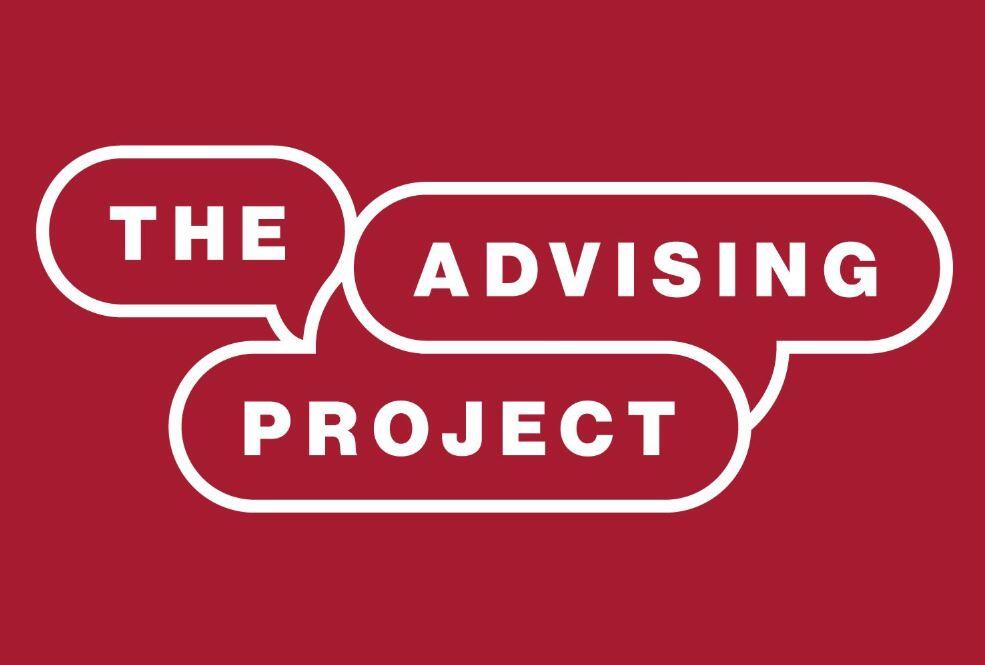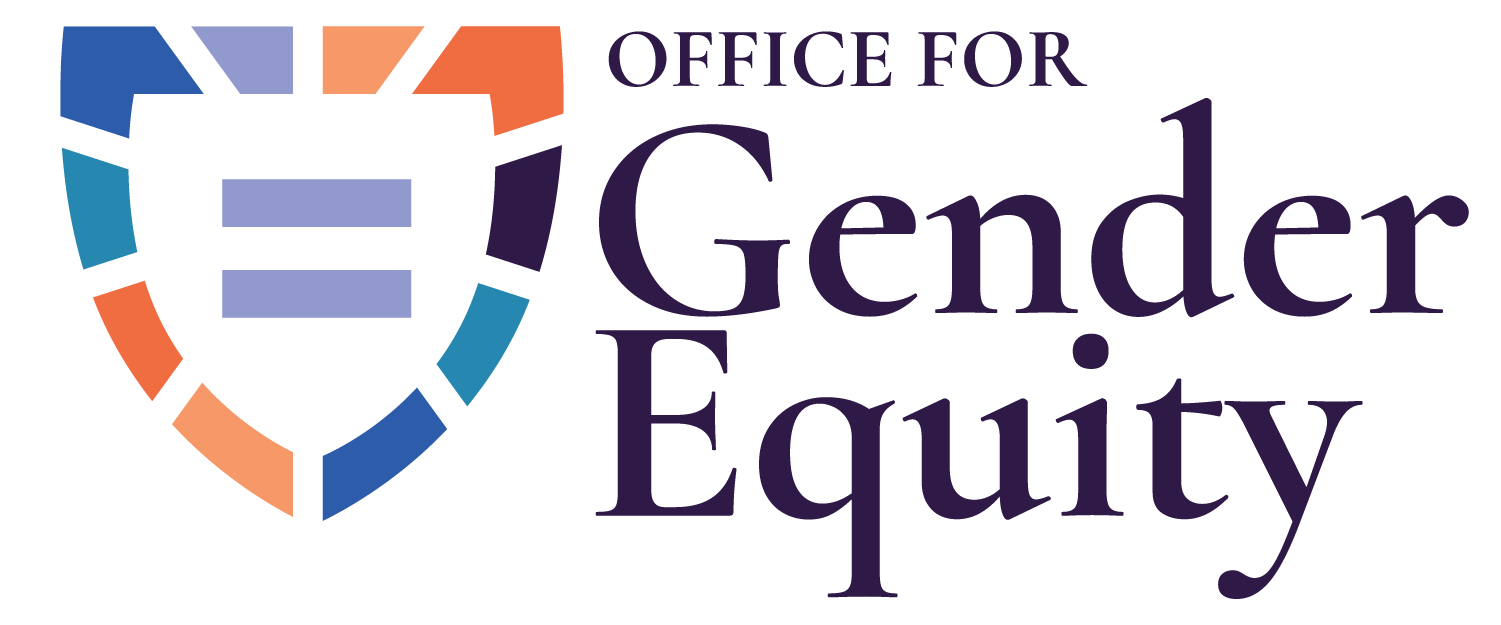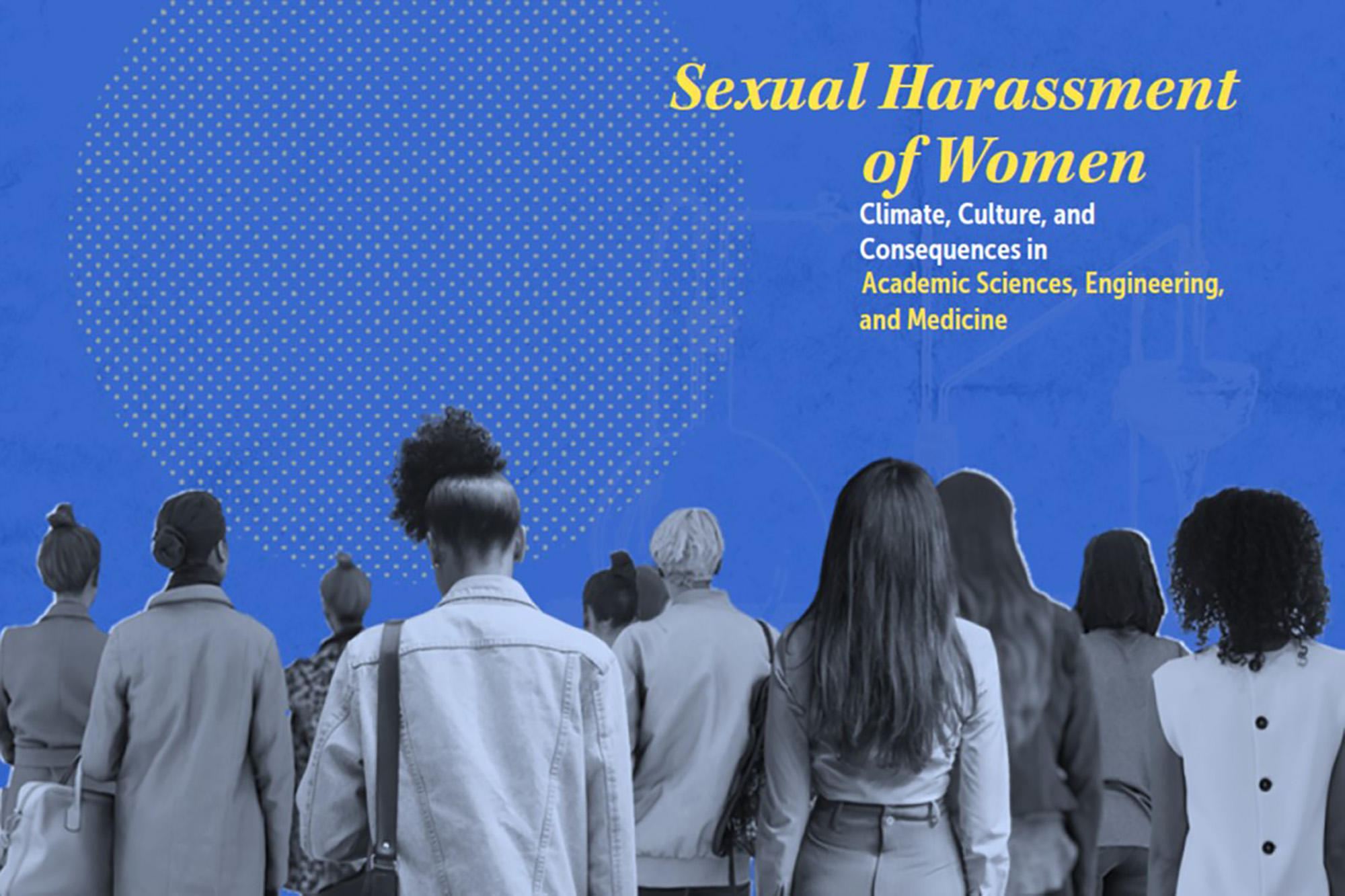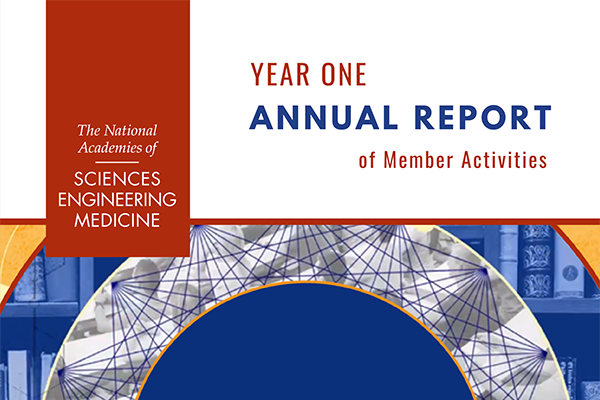NASEM Action Collaborative
2021 Workshop Proceedings
On April 20-21, 2021, the National Academies of Sciences, Engineering, and Medicine hosted the workshop Developing Evaluation Metrics for Sexual Harassment Prevention Efforts. The workshop explored approaches and strategies for evaluating and measuring the effectiveness of sexual harassment interventions being implemented at higher education institutions and research and training sites, in order to assist institutions in transforming promising ideas into evidence-based best practices. Workshop participants also addressed methods, metrics, and measures that could be used to evaluate sexual harassment prevention efforts that lead to change in the organizational climate and culture and/or a change in behavior among community members. This publication summarizes the presentations and discussion of the workshop.
Read the Published Proceedings
Goals
RAISE AWARENESS
about sexual harassment, how it occurs, the consequences of sexual harassment, and the organizational and recommended approaches to prevent it.
SHARE AND ELEVATE
evidence-based institutional policies and strategies to reduce and prevent sexual harassment.
CONTRIBUTE
to setting the research agenda, and gathering and applying research results across institutions.
DEVELOP
a standard for measuring progress toward reducing and preventing sexual harassment in higher education.
Progress at Harvard
Assessing the Climate
Harvard Hears You: The 2019 Summit for Gender Equity

Harvard Hears You: The 2019 Summit for Gender Equity, co-sponsored by the Weatherhead Center for International Affairs and Harvard University Title IX Office, took place in April, Sexual Assault Awareness Month, of 2019 and gathered more than 500 members of the Harvard community. The daytime portion of the Summit included events at the Richard A. and Susan F. Smith Campus Center. The day brought together experts in our community: students, faculty, and staff, as well as invited guests to present in a variety of formats including on-stage interviews, performances, and panel presentations. Topics ranged from gender equity in the workplace to LGBTQ+ inclusion. A special evening panel at Memorial Church featured renowned media and industry influencers, including Emmy-award winning actress Laverne Cox, fashion writer Nicolette Mason, fashion designer Christian Siriano, and gender culture expert Jessica Weiner. The evening panel facilitated an important discussion on gender equity, diversity, and inclusion across industries, popular culture, advertising, and consumerism. The Summit began a necessary dialogue, strengthened by lessons learned at and beyond Harvard, as Harvard strives to be a community of prevention and inclusion.
Harvard 2019 AAU Survey on Sexual Assault & Misconduct
 Harvard participated in the 2019 AAU Survey on Sexual Assault & Misconduct. Student responses to the survey provided data that informed efforts to prevent and respond to sexual assault and other misconduct at Harvard University. Harvard also served as a member of the national AAU Survey Design Team, partnering with experts across the U.S. to provide input on the design of the AAU 2019 core instrument.
Harvard participated in the 2019 AAU Survey on Sexual Assault & Misconduct. Student responses to the survey provided data that informed efforts to prevent and respond to sexual assault and other misconduct at Harvard University. Harvard also served as a member of the national AAU Survey Design Team, partnering with experts across the U.S. to provide input on the design of the AAU 2019 core instrument.
Harvard 2019 Pulse Survey
 In the spring of 2019, for the first time in its history, Harvard asked its community to share perceptions about inclusion and belonging at Harvard in order to count individual experiences. Responses to the survey were intended to help inform priorities, practices, and policies in the months and years to come. Although no survey can illuminate all there is to remedy, nor prescribe all that could be done, this 3-minute “pulse survey” was an important first step toward understanding more about inclusion and belonging. To learn more about the survey and its results, please visit the Pulse Survey webpage.
In the spring of 2019, for the first time in its history, Harvard asked its community to share perceptions about inclusion and belonging at Harvard in order to count individual experiences. Responses to the survey were intended to help inform priorities, practices, and policies in the months and years to come. Although no survey can illuminate all there is to remedy, nor prescribe all that could be done, this 3-minute “pulse survey” was an important first step toward understanding more about inclusion and belonging. To learn more about the survey and its results, please visit the Pulse Survey webpage.
Civility and Respect Promotion Programs
Trainings, Workshops, & Presentations
 OGE offers a suite of trainings, workshops, and presentations that provide consistent, yet customized, learning experiences for all members of the Harvard community. More than 15,000 students, faculty, and staff at Harvard participated in in-person programming from 2018-2020. You may learn about and request trainings by visiting our website's Training page.
OGE offers a suite of trainings, workshops, and presentations that provide consistent, yet customized, learning experiences for all members of the Harvard community. More than 15,000 students, faculty, and staff at Harvard participated in in-person programming from 2018-2020. You may learn about and request trainings by visiting our website's Training page.
Prevention in Action: Bystander Intervention Education for Employees
 Community conversations over the past year have signaled that staff, students, and faculty are eager to adopt practical tools to enable them to detect and respond to signs of harassment in their own learning and work environments. More specifically, faculty and staff have demonstrated an interest in primary prevention strategies within evidence-based frameworks that support organizational and cultural change.
Community conversations over the past year have signaled that staff, students, and faculty are eager to adopt practical tools to enable them to detect and respond to signs of harassment in their own learning and work environments. More specifically, faculty and staff have demonstrated an interest in primary prevention strategies within evidence-based frameworks that support organizational and cultural change.
OGE’s “Prevention in Action: Bystander Intervention & Beyond” was developed in 2018 in collaboration with staff, administrators, managers, and subject matter experts. This collaborative process yielded a program that invites participants to reflect on their own experiences as bystanders, discover opportunities to improve community climate, and develop personalized strategies to prevent sexual harassment and other sexual misconduct in the spaces where they work, learn, and live.
In addition to developing content, including extensive focus groups for curricular design, OGE has moved from the pilot phase of Prevention in Action to a full-scale rollout of programming for employees. In FYs 19 and 20, OGE facilitated nearly 120 hours of bystander intervention training to 1,694 employees. This training spans across Harvard's Schools and units and ranges from senior administrators to hourly employees.
Creating Diverse, Inclusive, and Respectful Environments
Office of Diversity, Inclusion & Belonging
 Following the release of the report of the Presidential Task Force on Inclusion and Belonging, the Office for Diversity Inclusion & Belonging (ODIB) was established in October 2018. Informed by the recommendations of the Presidential Task Force on Inclusion and Belonging, ODIB will guide Harvard’s culture toward sustainable inclusive excellence by convening stakeholders, serving as a catalyst for strategic efforts, analyzing University-level progress, optimizing investments, and facilitating University-wide coordination.
Following the release of the report of the Presidential Task Force on Inclusion and Belonging, the Office for Diversity Inclusion & Belonging (ODIB) was established in October 2018. Informed by the recommendations of the Presidential Task Force on Inclusion and Belonging, ODIB will guide Harvard’s culture toward sustainable inclusive excellence by convening stakeholders, serving as a catalyst for strategic efforts, analyzing University-level progress, optimizing investments, and facilitating University-wide coordination.
The reorganized office structure includes a direct report and senior advisor to the president, a Chief Diversity and Inclusion Officer, and a team of program managers. ODIB’s mandate is to facilitate the collective decision making and localized implementation process in pursuit of incorporating diversity, inclusion, and belonging across all aspects of Harvard University.
Diversity, Inclusion, & Belonging Leadership Council
 The Harvard University Diversity, Inclusion, and Belonging Leadership Council consists of leaders at Schools and those within central administration dedicated to advancing diversity, equity, inclusion, and belonging work across the University.
The Harvard University Diversity, Inclusion, and Belonging Leadership Council consists of leaders at Schools and those within central administration dedicated to advancing diversity, equity, inclusion, and belonging work across the University.
These monthly convenings enable DIB Council leaders to meet and share best practices, strategize, collaborate, and pursue coordinated efforts with greater intentionality and greater impact.
The DIB Council will focus on the shared goal of developing the strategies that will drive constant improvement and identify the local implementations that can be replicated across Harvard and beyond. This “One Harvard” initiative will align the University’s campus around a coordinated vision, collectively develop commitments, set priorities for local implementation, and amplify successes.
Harvard Culture Lab
 The Harvard Culture Lab Innovation Fund awards grants to Harvard students, staff, faculty, postdoctoral researchers, and academic personnel to pursue ideas that seek to strengthen Harvard’s capacity to advance a culture of belonging. Proposals should aim to focus on having a direct connection to the Harvard community and influence the University's trajectory towards sustainable inclusive excellence guided by the framework recommended by the Presidential Task Force on Inclusion and Belonging. Proposals should aim to address critical challenges around diversity, equity, inclusion, and belonging by identifying innovative and creative solutions that have the potential to catalyze a culture shift at Harvard.
The Harvard Culture Lab Innovation Fund awards grants to Harvard students, staff, faculty, postdoctoral researchers, and academic personnel to pursue ideas that seek to strengthen Harvard’s capacity to advance a culture of belonging. Proposals should aim to focus on having a direct connection to the Harvard community and influence the University's trajectory towards sustainable inclusive excellence guided by the framework recommended by the Presidential Task Force on Inclusion and Belonging. Proposals should aim to address critical challenges around diversity, equity, inclusion, and belonging by identifying innovative and creative solutions that have the potential to catalyze a culture shift at Harvard.
The priority theme for the 2019-2020 funding cycle of the Culture Lab Innovation Fund is “Advancing Diversity, Inclusion, and Belonging through Technology Driven Solutions." These are innovative ideas that leverage technology and data to address challenges around diversity, equity, inclusion, and belonging at Harvard.
Gender Inclusive Restroom Mapping Project
The Gender Inclusive Restroom Mapping project for Harvard University seeks to ensure that all Harvard community members, including those who are transgender, gender nonbinary, and gender nonconforming, have accurate and inclusive means of locating restrooms when at Harvard.
Phase one of this project provided an inventory of the current gender inclusive restrooms that exist at Harvard (excluding residences). Phase two of this project, which rolled out in early 2021, inventoried and discreetly communicated, via a single, web-based application, the location of gender inclusive restrooms across Harvard’s campuses.
For information regarding campus access due to COVID-19 visit https://www.harvard.edu/coronavirus.
Improving Transparency and Accountability
Since the first administration of the AAU Survey in 2015, OGE and its network of local Title IX Resource Coordinators have taken a multi-faceted approach to increasing awareness of the resources and options available (including reporting options) to the community. Examples of these efforts include:
 Increasing training and in-person engagement. This is being achieved by increasing the number of individuals who receive in person training on resources, options, and bystander strategies; instituting mandatory training for staff and faculty, either online or in person, to explain the role of individuals as “responsible employees”; providing online training, customized by School, to all incoming students and many returning students (e.g., all Harvard College students participate in customized mandatory online training annually); increasing the number of local Title IX Resource Coordinators across the University, and much more. To learn more about the scope of these changes and their impact, read our most recent Annual Report.
Increasing training and in-person engagement. This is being achieved by increasing the number of individuals who receive in person training on resources, options, and bystander strategies; instituting mandatory training for staff and faculty, either online or in person, to explain the role of individuals as “responsible employees”; providing online training, customized by School, to all incoming students and many returning students (e.g., all Harvard College students participate in customized mandatory online training annually); increasing the number of local Title IX Resource Coordinators across the University, and much more. To learn more about the scope of these changes and their impact, read our most recent Annual Report.
 Developing and distributing resource documents. OGE constantly reviews and revises current resource materials and issues new resource materials in response to community feedback. It has recently revised and re-issued the Engage. Educate. Empower. - Resource Guide, issued a number of resource materials in Spanish including ODR el Proceso de Investigacion, and Asesor Personal: Preguntas Frecuentes, and distributes information in new ways including the "What Are My Options?" magnets, static clings, and posters placed on campus bathroom mirrors, stall doors, employee kitchens, etc. to inform community members of their options including how to report anonymously using recently launched Harvard's Anonymous Disclosure Form. To view a more complete list of resource materials available, visit this site's Learn * Get Involved page.
Developing and distributing resource documents. OGE constantly reviews and revises current resource materials and issues new resource materials in response to community feedback. It has recently revised and re-issued the Engage. Educate. Empower. - Resource Guide, issued a number of resource materials in Spanish including ODR el Proceso de Investigacion, and Asesor Personal: Preguntas Frecuentes, and distributes information in new ways including the "What Are My Options?" magnets, static clings, and posters placed on campus bathroom mirrors, stall doors, employee kitchens, etc. to inform community members of their options including how to report anonymously using recently launched Harvard's Anonymous Disclosure Form. To view a more complete list of resource materials available, visit this site's Learn * Get Involved page.
![]()
Collaborating and Establishing Community Partnerships. A Student Liaison Committee, comprised of 15 students from across the University, was created to act as ambassadors to their communities and give voice to students’ needs, interests, and perspectives around sexual and gender-based harassment, prevention, and response. Students convene, with support from the Assistant Director for Title IX Education Programs, from October to May and contributed significantly to the success and effectiveness of multiple initiatives in which it is involved. To date, student representatives have: identified community needs and resource gaps; reviewed and provided recommendations for improving resources; recruited and provided student input on multiple student-facing resources and initiatives including annual reports, the 2019 Summit for Gender Equity program, and promotional materials for the Harvard 2019 AAU Survey; and supported content development of scenario-based learning in student-facing training and education initiatives.
A Title IX Liaison Committee for Staff was also created. Committee members were immediately eager to deliver enhanced resources and outreach efforts to their respective communities across Harvard’s Cambridge, Boston, and Allston campuses. As of October 2019, Title IX Liaisons for staff have: initiated a community-awareness campaign for Title IX resources for employees; supported a large-scale project to catalogue gender-inclusive restrooms; performed reviews of the mandatory online module, “Supporting a Harassment-Free Community”; and met with their local Title IX Resource Coordinators about local-level initiatives.
Interrupting and Intervening in Inappropriate Behavior
NASEM Summit Poster Session
 In August 2019, Harvard participated in the NASEM Action Collaborative on Preventing Sexual Harassment in Higher Education: 2019 National Summit. A copy of Harvard’s poster, "Prevention in Action: Bystander Intervention for Faculty, Staff & Administrators", can be found here.
In August 2019, Harvard participated in the NASEM Action Collaborative on Preventing Sexual Harassment in Higher Education: 2019 National Summit. A copy of Harvard’s poster, "Prevention in Action: Bystander Intervention for Faculty, Staff & Administrators", can be found here.
NASPA Strategies Conference 2020
 In January of 2020, Title IX personnel from Harvard’s Schools and units participated in critical dialogue around the intersections of sexual harassment and assault, alcohol and other drugs, and mental health in academia. The NASPA Strategies Conference, held in New Orleans, LA, brought administrative leaders, student services practitioners, and public health and prevention experts together to explore the impacts of such co-occurring issues on higher education, and to discuss promising practices for primary intervention. Harvard University’s Title IX representatives contributed to the conversation in an open poster session for 400 participants, outlining a blueprint for building Bystander Intervention programming for faculty and academic leaders. Additionally, Title IX representatives in Harvard’s Student Services led a roundtable where higher education practitioners and leaders discussed plans, challenges, and long-term goals for NASEM recommendations concerning graduate students.
In January of 2020, Title IX personnel from Harvard’s Schools and units participated in critical dialogue around the intersections of sexual harassment and assault, alcohol and other drugs, and mental health in academia. The NASPA Strategies Conference, held in New Orleans, LA, brought administrative leaders, student services practitioners, and public health and prevention experts together to explore the impacts of such co-occurring issues on higher education, and to discuss promising practices for primary intervention. Harvard University’s Title IX representatives contributed to the conversation in an open poster session for 400 participants, outlining a blueprint for building Bystander Intervention programming for faculty and academic leaders. Additionally, Title IX representatives in Harvard’s Student Services led a roundtable where higher education practitioners and leaders discussed plans, challenges, and long-term goals for NASEM recommendations concerning graduate students.
Bystander Video Project
 To continually enhance the quality, resonance, and effectiveness of Title IX Education programming at Harvard, OGE joined a grant-funded media production initiative with University diversity and inclusion experts. This initiative was created in order to produce true-to-life video vignettes that illustrate examples of common organizational climate issues, and strategies for bystander intervention. To date, this initiative has engaged students, staff, and faculty in developing and revising content and identifying effective means of facilitating these cutting-edge learning tools.
To continually enhance the quality, resonance, and effectiveness of Title IX Education programming at Harvard, OGE joined a grant-funded media production initiative with University diversity and inclusion experts. This initiative was created in order to produce true-to-life video vignettes that illustrate examples of common organizational climate issues, and strategies for bystander intervention. To date, this initiative has engaged students, staff, and faculty in developing and revising content and identifying effective means of facilitating these cutting-edge learning tools.
Providing Support for the Targets of Harassment
Anonymous Disclosure Form
 With the assistance of students, staff, and faculty, in October 2019, Harvard rolled out its first online anonymous disclosure tool for incidents of sexual and gender-based harassment. Through the online anonymous form, concerns of sexual and gender-based harassment at Harvard may be relayed anonymously to OGE, and the person submitting the disclosure may communicate with an OGE staff member and access resources without revealing their identity.
With the assistance of students, staff, and faculty, in October 2019, Harvard rolled out its first online anonymous disclosure tool for incidents of sexual and gender-based harassment. Through the online anonymous form, concerns of sexual and gender-based harassment at Harvard may be relayed anonymously to OGE, and the person submitting the disclosure may communicate with an OGE staff member and access resources without revealing their identity.
"What Are My Options?"

Issued in magnet, static cling, and bathroom stall poster formats. the "What Are My Options?" resource informs members of the Harvard community who may have been impacted by sexual harassment or other sexual misconduct of their options including how to report anonymously through the Harvard's Anonymous Disclosure Form.
Trauma-Informed Response and Education Programs
 OGE, in partnership with Harvard’s Office for Dispute Resolution, delivers annual trainings to each of the Harvard Schools’ conduct review boards (faculty, senior staff, and students), appellate panelists (faculty and senior staff), and designees (faculty and senior staff), a total of nearly 200 community members. Each group’s training includes a section on the neurobiology of sexual assault.
OGE, in partnership with Harvard’s Office for Dispute Resolution, delivers annual trainings to each of the Harvard Schools’ conduct review boards (faculty, senior staff, and students), appellate panelists (faculty and senior staff), and designees (faculty and senior staff), a total of nearly 200 community members. Each group’s training includes a section on the neurobiology of sexual assault.
Reducing Power Differentials
Harvard Graduate School of Arts and Sciences - The Advising Project
 Launched by Dean Emma Dench, The Advising Project is an in-depth initiative focused on improving the advising experience of master’s and PhD students at GSAS. Over the course of two years, the Project will evaluate and celebrate what constitutes effective advising, develop best practices, and disseminate information about how students, faculty, and other partners can work together to enhance the advising experience with an eye to effecting lasting institutional change.
Launched by Dean Emma Dench, The Advising Project is an in-depth initiative focused on improving the advising experience of master’s and PhD students at GSAS. Over the course of two years, the Project will evaluate and celebrate what constitutes effective advising, develop best practices, and disseminate information about how students, faculty, and other partners can work together to enhance the advising experience with an eye to effecting lasting institutional change.




